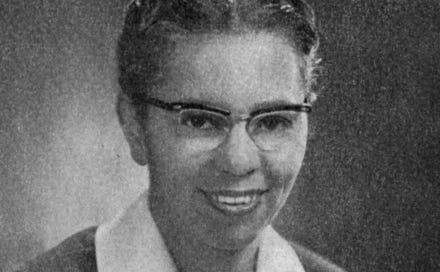Today In Black History: Dr. Willa Beatrice Player
The first African American woman to become president of an accredited four-year college
Issue #830 Today In Black History, Wednesday, March 26, 2025
If you like us, REALLY like us, please click the “Like” button at the end of this post!
Your “Likes” mean a LOT to us! We appreciate your support!
Our March, 2025 subscriber goals are 200 new free subscribers and 100 new paid subscribers! You can help us reach our goal!
Follow Pam on Bluesky, the best “X” alternative.
Follow Keith on Bluesky, the best “X alternative.
We appreciate your support!
Engage with us and our posts in Substack Notes, where we post almost daily.
Dr. Willa Beatrice Player was born in Jackson, Mississippi, on August 9, 1909. She graduated with a Bachelor's degree from Ohio Wesleyan University in 1930 and later obtained her Master's degree in education from Oberlin College in 1933.
After teaching at Bennett for a few years, Player took a leave of absence for postgraduate studies. She studied at the University of Grenoble in France and received a Certificat d'Études in 1935.
In 1948, she earned a Doctorate in Education from Columbia University.
Willa Beatrice Player's professional journey began at Bennett College for Women in Greensboro, North Carolina, an institution dedicated to the education and empowerment of African American women. She joined the faculty as a professor of education and psychology in 1930 and ascended the academic ranks through her dedication and leadership capabilities.
In 1955, Dr. Player broke new ground when she was appointed president of Bennett College, making history as the first African American woman to hold such a position at an accredited four-year institution. Her tenure as president was marked by her unwavering commitment to academic excellence, social justice, and the empowerment of young African American women.
During her presidency, Dr. Player championed innovative educational programs, strengthened the college's academic offerings, and emphasized the importance of a liberal arts education. Her leadership extended beyond the confines of academia, as she advocated for civil rights and social change during a turbulent era in American history.
Dr. Player encouraged Bennett College women to act their beliefs for civil rights and activism. Initially unaware that Bennett students were planning civil rights protests after Dr. Martin Luther King, Rev. Howard Thurman, and Dr. Benjamin E. Mays had spoken at the college, Player encouraged them to participate in sit-ins in February 1950 to achieve integration of lunch counters. She held meetings with faculty and staff during the Greensboro actions sit-ins to educate them and arranged to support students in jail by delivering their assignments so they would not fall behind.
In 1962, Dr. Player was named President of the National Association of Schools and Colleges of the Methodist Church, the first woman to hold the position. She was the first African American to serve on the board of trustees of Ohio Wesleyan. After 36 years of service to Bennett College, Dr. Player stepped down as president in 1966.
That year, President Lyndon B. Johnson's administration appointed her the first female Director of the Division of College Support in the United States Department of Health, Education, and Welfare, a position she held until retiring in 1986.
Dr. Willa Beatrice Player never married, retired in 1986, and moved to Akron to live out her later years. She died on August 29, 2003, in Greensboro and was buried in Glendale Cemetery in Akron, near her family.
Today In Black History
In 1863, during the Civil War, West Virginia approved the gradual emancipation of slaves.
In 1872, Black inventor Thomas J. Martin was awarded a pipe and valve fire extinguisher system patent.
In 1910, William Henry Lewis was appointed U.S. Assistant Attorney General by President Howard Taft, becoming the first Black person appointed to a sub-Cabinet position.
In 1937, William H. Hastie was confirmed as judge of the Federal District Court in the U.S. Virgin Islands, becoming the first Black federal judge.
In 1952, the eight-year Mau Mau uprising against colonial rule in Kenya helped hasten the country's independence in 1963.
In 1991, Rev. Emmanuel Cleaver became Kansas City, Missouri's first African American mayor.
All “We Are Speaking” posts are now free for everyone to read, and commenting on our posts is now open to everyone!
Share this post:
Share this publication:
Our subscriber goals for March 2025 include 200 new free subscribers and 100 new paid subscribers. Click the link to help us reach our goals!
Our paid subscribers are encouraged to discuss this post in our W.A.S. Chat Community.
Join Pamela Hilliard Owens’s subscriber chat
Available in the Substack app and on the web
You are also welcome to view “We Are Speaking” in Substack Notes. You can also read other Substack publications without subscribing to them when you join Notes.
Did you know that you can listen to each “We Are Speaking” post and engage directly with us on the Substack App? Download the app!
Please check out Keith’s AfroFantasy Detroit Substack for posts about fantasy, sci-fi, and Afrofuturism!






